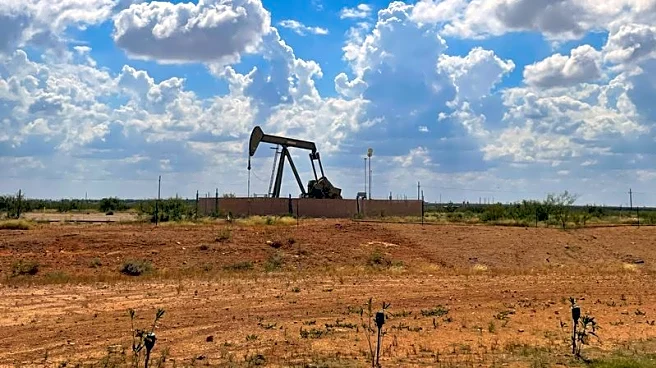What is the story about?
What's Happening?
The British Broadcasting Corporation (BBC) has undergone significant changes since its establishment in 1922. Originally formed as the British Broadcasting Company, it evolved into a public-service broadcaster under a royal charter. The BBC is funded primarily by an annual television license fee, which supports its radio, TV, and online services. Over the years, the BBC has expanded its reach globally, with the BBC World Service broadcasting in multiple languages. Despite its historical significance, the BBC faces modern challenges, including debates over its funding model, political impartiality, and competition from commercial broadcasters.
Why It's Important?
The BBC's role as a public-service broadcaster is crucial in providing impartial news and educational content to audiences in the UK and worldwide. Its funding model, based on license fees, ensures that it remains independent from commercial pressures, allowing it to focus on quality programming. However, the BBC's impartiality has been questioned, with accusations of political bias from various quarters. The corporation's ability to adapt to digital advancements and maintain its relevance in a rapidly changing media landscape is vital for its continued success.
What's Next?
The BBC is likely to face ongoing scrutiny regarding its funding and governance, with potential reforms to ensure transparency and accountability. As digital media continues to grow, the BBC may need to innovate its content delivery methods to compete with streaming services like Netflix. The corporation's commitment to diversity and representation will be essential in reflecting the changing demographics of its audience. Future developments may include increased collaboration with international broadcasters and further investment in digital platforms.
Beyond the Headlines
The cultural impact of the BBC is profound, as it has shaped British identity and global perceptions of the UK. Its programming has influenced public discourse and contributed to the arts and education. The ethical considerations of public broadcasting, including the balance between state influence and editorial independence, remain critical in ensuring the BBC's role as a trusted news source.


















